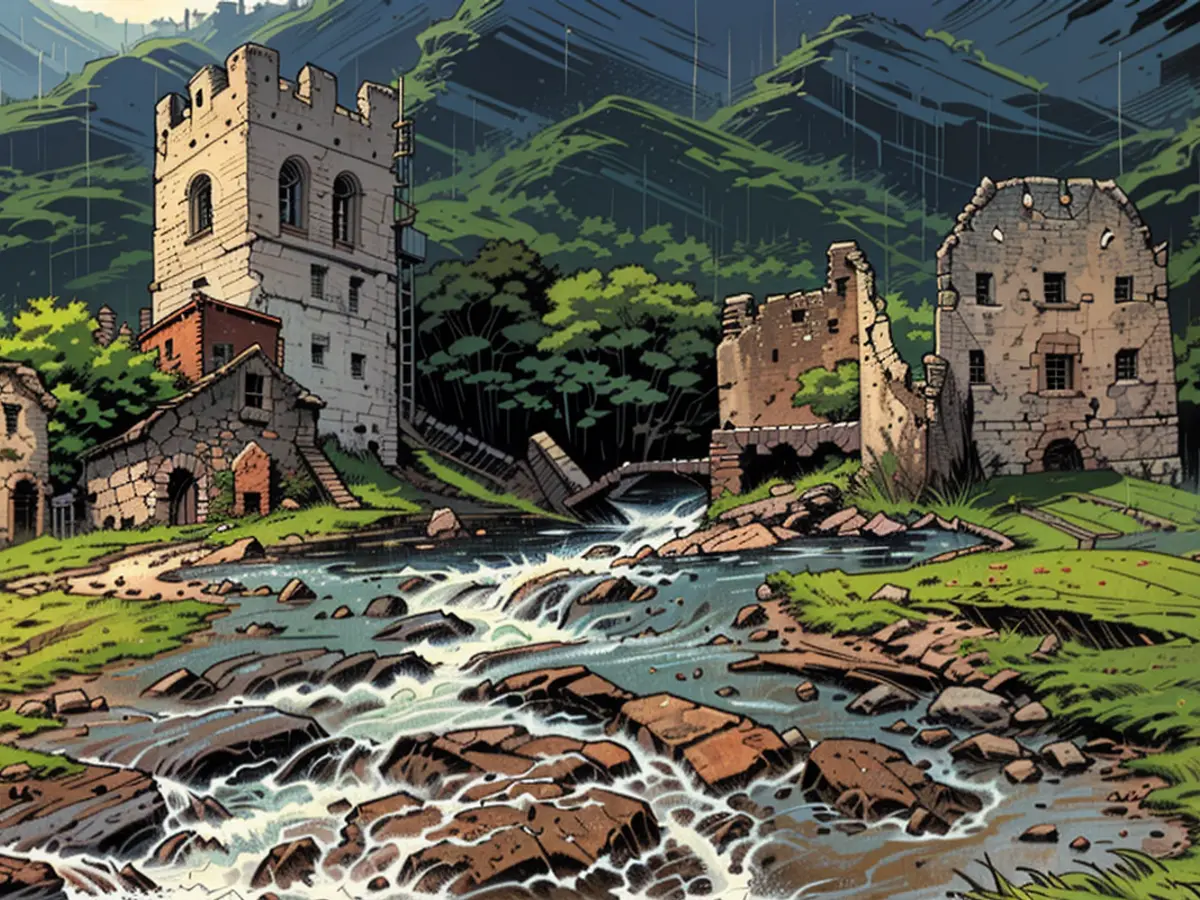Consequences of storms - Falkenstein Castle: Masses of rain uncover historical finds
Massive rainfalls at the beginning of June brought archaeologically significant finds to the surface at Burg Falkenstein in Flintsbach am Inn. Findings include approximately oven tiles, as reported by Flintsbach am Inn Mayor Stefan Lederwascher (CSU) on Tuesday. "The castle had unusually many tile ovens. Tiles from various periods were found." The decorated pieces suggested that the person who lived in the castle had wealth. Parts of an old staircase into the valley were also uncovered by the floods. The "Suddeutsche Zeitung" was the first to report on the findings.
The finds were quickly secured, Lederwascher added. The area was closed to the public. Entry was still dangerous, and taking possible historical artifacts was not allowed.
Burg destroyed once before
The at least 700-year-old castle was extensively renovated from 2016 to 2019 for approximately one million Euros. The ruin near the Autobahn at the Austrian border is a popular tourist destination.
The castle was destroyed by fire at the end of the 18th century. The owner at the time lived in Schloss Brannenburg and explained that there was a farm in the castle ruins for a while. "There's a painting showing the farmstead - and indeed, remains of the farmstead were found." Parts of the ruin were also used as a quarry, and neighbors had obtained building materials there.
Renovation necessary before winter
It is now urgent to secure the remains of the castle. "Something needs to happen, because the walls are exposed," Lederwascher said. Before winter, something must be done. "As soon as water gets into the walls and freezes, the masonry breaks down even further."
The floods in early June severely damaged the castle, with parts of the castle wall being swept away by falling water masses. Experts from the Bavarian Monument Preservation Office, structural engineers, geologists, archaeologists, and architects inspected the castle after the flood.
The main castle Falkenstein was built around 1300, according to the Chiemsee-Alpenland Tourism Association. The outer castle was built in the 15th and 16th centuries. It is part of the Petersberg monument complex with the Roman St. Peter's Church and the adjacent Mesner House.
The flood-induced excavations revealed intriguing archaeological treasures in Bavaria's Burg Falkenstein, as reported by SZ. The fortress, previously devastated by fire in the 18th century, showcased remnants of a farmstead, adding to its rich history.
The flood waters also unearthed pieces of ancient tile ovens from various eras, hinting at the castle's wealth and cutlery, as stated by Lederwascher. The discovery of a well-preserved old staircase, leading into the valley, added another chapter to Bavaria's historical narrative.
The recent storms and excessive rainfall, responsible for these revelations, further highlighted the fragility of this historic monument. Consequently, immediate renovations are necessary to preserve the castle before winter's freezing rain mass.
The floods' aftermath, monitored by experts including archaeologists, has exposed new aspects of Burg Falkenstein's history. As the castle's walls crumble near the Austrian border, it serves as a stark reminder of the necessity to preserve ancient German heritage from natural disasters and time.
The current flood devastations resurface the lethal force of water masses, reminiscent of the castle's past destruction by fire. The resilience demonstrated by the castle's inhabitants throughout its 700-year history is truly amazing and a testament to human endurance.
Regardless of the challenges faced, the castle's legacy continues to inspire and evoke curiosity among tourists, making it a hub of both cultural and archaeological significance.








